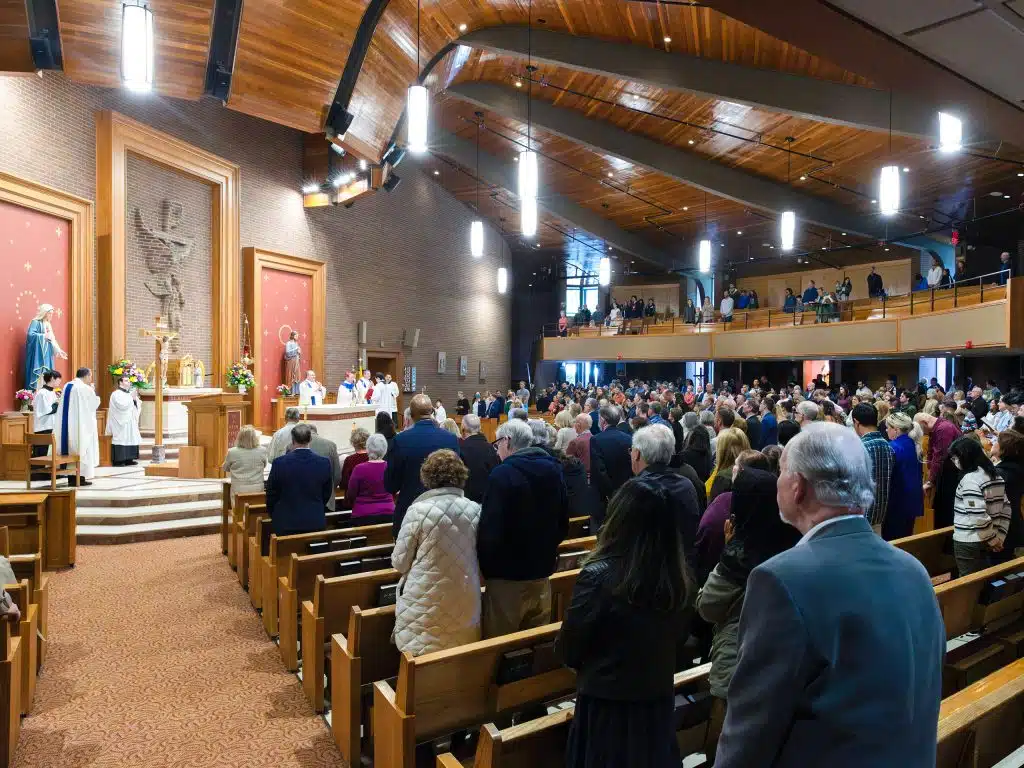Although Pope Francis has been extending warnings about the ideology of “gender theory” in its many forms for years now — for example, “Amoris Laetitia,” 2016 — a new document on the subject, “Male and Female He Created Them: Towards a Path of Dialogue on the Question of Gender Theory in Education” from the Congregation for Catholic Education describes the crisis in greater detail and offers some ideas for addressing it.
At the heart of the crisis is an attack on the family as a foundational institution in society and culture, being waged in the classrooms of our schools, from preschool reading hours through elementary and high school curricula, to university campuses.
The ammunition in this battle is subtle and complex, being wrapped in the sheep’s clothing of healthy diversity of book content, enhanced family life education, and tolerance and respect for varieties of family structures and love relationships. Confusing matters further, the term gender, initially coined to reflect varying masculine versus feminine traits and roles, now is used synonymously with the construct of one’s biological sex with the caveat that one can claim a gender based on one’s subjective mindset at any given time. While the message is delivered differently depending upon a child’s developmental level, the message from the gender theorists is the same: the biological differences between males and females are not important, and one’s sexual identity is not determined by one’s genetic profile, but rather by “the realm of feelings and wants, or momentary desires provoked by emotional impulses and the will of the individual, as opposed to anything based on the truths of existence.” The consequences of this toxic message are being experienced through increased familial alienation, mental health problems and social confusion in bathrooms and locker rooms, and even on the athletic field.
The document acknowledges that the primary concern of those advocating gender fluidity is to protect the dignity of persons who have claimed an unconventional sexual or gender identity. The Catholic Church is unabashed in proclaiming the inherent dignity of every human person, and the document advocates for educators to foster dialogue and listen to those with differing views. It emphasizes “the need to educate children and young people to respect every person in their particularity and difference, so that no one would suffer bullying, violence, insults or unjust discrimination … ” However, giving respect to a person does not obligate the child (or their parents) to suspend reason or deny reality, which is what many advocating gender ideology seem to expect. The Vatican document is clear: “The data of biological and medical science shows that … the sexual difference between men and women can be demonstrated scientifically by such fields as genetics, endocrinology, and neurology.” As Catholic parents and educators, it is a disservice to the children in our care to not stand firm on this ground. The introduction of multiple genders or gender fluidity has muddied the waters and added to human suffering. And the suffering takes differing forms.
The psychological sciences have known for decades that persons who experience themselves as different than their biological sex are in grave pain, and for this we must have compassion. Although it is tempting to “support” a male child who is claiming to be a girl (or vice versa), this effort at kindness is not true compassion. The child in question needs love and clarity of the truth, and to be brought to some understanding of how his experience of himself became skewed. Another suffering that has become a point of confusion is a set of medical conditions referred to as “intersex” disorders, where a person is born with ambiguous genitalia or anomalous sex chromosome structures. Sadly, the gender ideology advocates have incorporated such persons into their group (LGBTQI), despite the fact that many can receive proper intervention in infancy and live relatively ordinary lives. This incorporation conflates those persons with a biological or genetic abnormality with those whose issues are emotional and developmental. The needs and care for persons in each of these circumstances is unique, and the manner to best understand them belies their being included in the same ideological agenda.
The document’s concluding section, “Proposing,” offers a clear recommendation regarding how educators ought to approach gender ideology during these complex and confusing times. In brief, the emphasis is on the need for a “clear and convincing anthropology,” or understanding of the human person, as a foundation for developing educational programs. In other words, teachers, schools and we parents as primary educators of our children need to get back to the basics, teaching our children about their inherent dignity, being made in the image and after the likeness of God, and all the rights and responsibilities to respect others that come forth from that truth. First and foremost, the way to find one’s identity is through right, emotionally intimate relationships, and making a gift of oneself to others in a generous and charitable manner. In this way, a young person can manifest authentic Christian love to a peer who is confused about their identity, without abuse or discrimination, yet with respect, compassion and adherence to the truth: Male and female he created them. Hopefully, this will create an educational environment where this truth can be spoken clearly without obscuring or hiding aspects of this reality that are ideologically unpopular in some circles — and an authentic compassion for those in pain.
Moncher is program coordinator for the diocesan Office of Victim Assistance.


The Good Shepherd